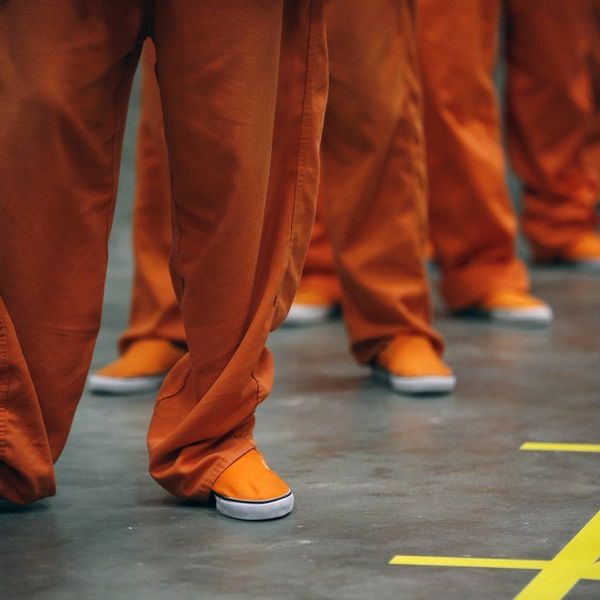Solitary confinement, a component of the prison system that aims to prepare inmates for reentry into their communities, instead prepares individuals for a lifetime of recidivism. Although a popular practice of the modern world, prisoners being forced to live in isolation is nothing new. Solitary confinement first came into existence through a social experiment done by the Quakers in the 1700s. The Quakers believed that this isolation would provide prisoners time to reflect upon their wrongdoings, and subsequently, strengthen their relationship with God. However, it soon became clear that this practice was detrimental, and any “survivors” were released from the Auburn, New York prison after eighteen months. Despite this haunting past, the practice of solitary confinement persists today. Currently, there are approximately 80,000 inmates held in isolation across the United States. Grievously, statistics show that the effects of this are being felt throughout the entire prison system and beyond.
In a study done by Grassian, a psychologist, results showed that the lack of stimulation present in the life of a person held in isolation does indeed contribute to the manifestation of mental illnesses. In Grassian’s study, forty inmates being held in solitary confinement in a United States prison were interviewed. Each inmate reported hallucinations, difficulty with thinking, concentration and memory, and issues regarding impulse control. This study is criticized because Grassian did not use a comparison group, and therefore cannot compare prisoners in solitary confinement against prisoners in the general population. However, Grassian’s study does not stand alone. Multiple other studies hold the same findings, and one such study was done by Diane Kelsall, a Canadian based psychologist. Kelsall found through research that the negative effects of solitary confinement begin to actualize in prisoners within a few days of their isolation. Some of these effects resolve and disappear, but for those that have been in isolation for a lengthy amount of time, harmful side effects tend to stay. People who have been kept in solitary confinement for a long time report higher rates of depression, anxiety, and other mental health issues than the general population of prisoners report. Both Grassian and Kelsall hold that if the true purpose of incarceration is the release of offenders back into society, then solitary confinement is highly counterintuitive. Simply put, if isolation imposes such harsh adverse effects on prisoners, then those prisoners will in no way be qualified to return to normal livelihoods.
In a more specific light, a vast amount of scientific research has gathered that juveniles differ from adults in that they exhibit a greater capacity for change. This is most likely due in part to the fact that the brains of juveniles are not fully developed, and consequently, their identities are not fully formed either. The impact of isolation on a juvenile is potentially much more detrimental to that of an adult because of said capacity for change. Therefore, this practice has the unfortunate probability of damaging a child’s entire life. A fair proposal to correct this practice includes the use of solitary confinement only when perilously needed, such as when a juvenile poses a threat of immediate, substantial harm to others.
Children are not the only group that is unjustly represented in the solitarily confined. In the United States of America, it is much more common for a prisoner of a minority group to be placed in isolation than it is for a white prisoner to be placed in isolation. This is mostly attributed to bias and racial profiling, both of which are all too common in the criminal justice system today. Regardless of what this imbalance is caused by, though, its effects are harmful, long lasting, and sometimes reminiscent of the oppression minority groups have suffered for centuries.
Grayson Taylor, a psychologist and noted author, has stated in his works that solitary confinement can be seen as a parallel to slavery. In both scenarios, individuals are completely stripped of their humanity. In taking away the humanness of a person, it is also possible to take away their sanity. Taylor argues that although traditional slavery has been abolished, minorities still undergo the heinous treatment that their ancestors endured, albeit in a different form. Similar to other psychologists in his field of expertise, Taylor acknowledges that isolation is perhaps the least effective way to rehabilitate prisoners so that they may return to their communities.
Although counterintuitive and oftentimes injurious, solitary confinement is at times a necessary evil due to the unrelenting violent nature of some criminals. However, when isolation is necessary because of the threat of immediate, substantial harm to others, certain measures should be taken to ensure that the individual is still being treated justly according to both the Eighth Amendment and the Americans with Disabilities Act. A person held in isolation should be provided mental health care, so that it is more likely that their return to the general population will be a successful one. There should be an appropriate time limit placed upon how long a person will be forced to live solitarily. In almost no circumstances should a child endure these conditions, as it essentially guarantees a lifetime of recidivism. Lastly, supervision should be placed more heavily on the guards to ensure that those in solitary confinement are being treated fairly and with respect. These guidelines should very rarely become relevant, however, because the practice of solitary confinement itself should not be relevant. Separating an individual from the rest of the population in no way prepares them for a return into that population, or any other population for that matter. As the world continues to progress on human rights issues, solitary confinement is a concern that needs to be focused upon more frequently.





















